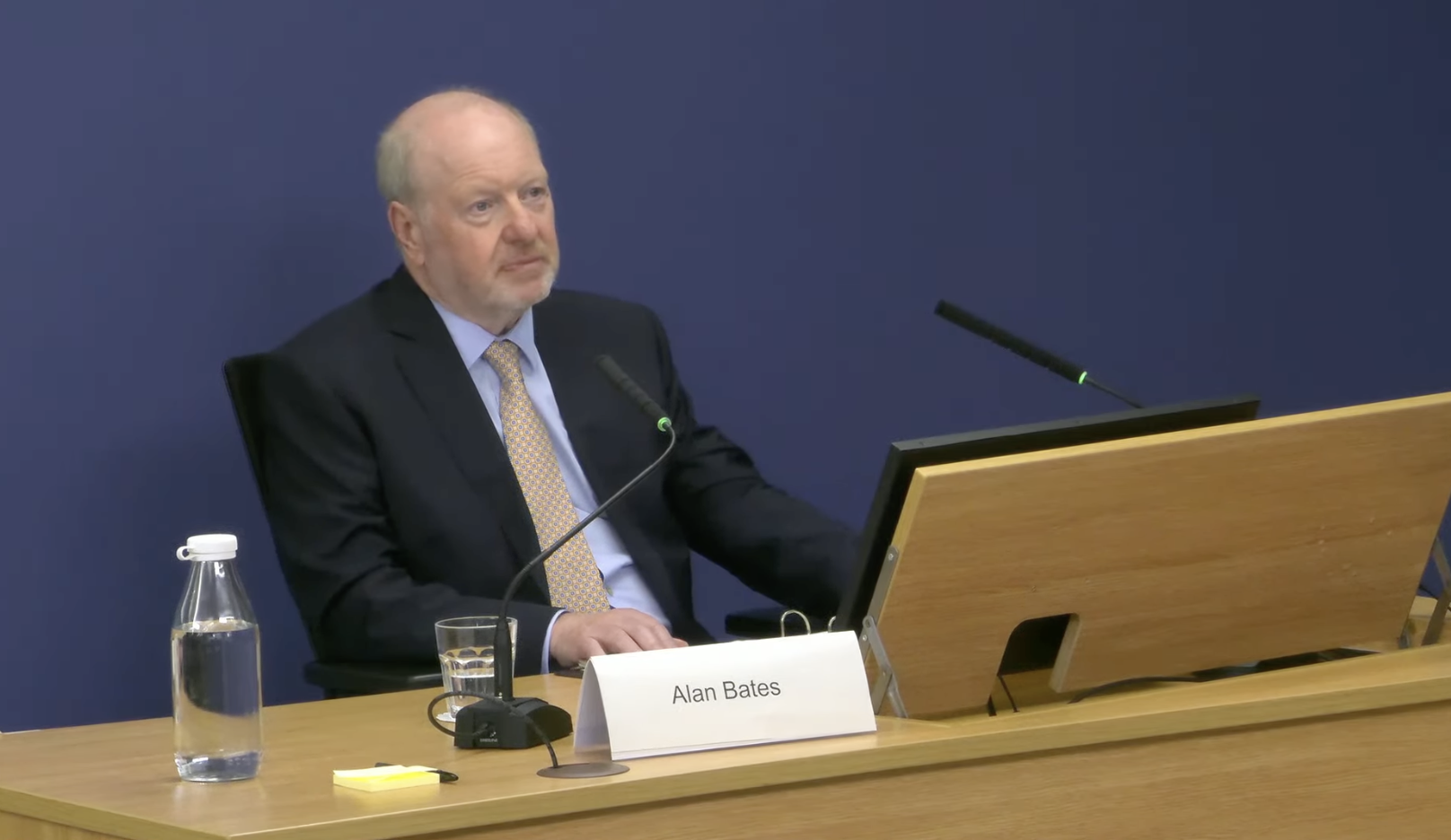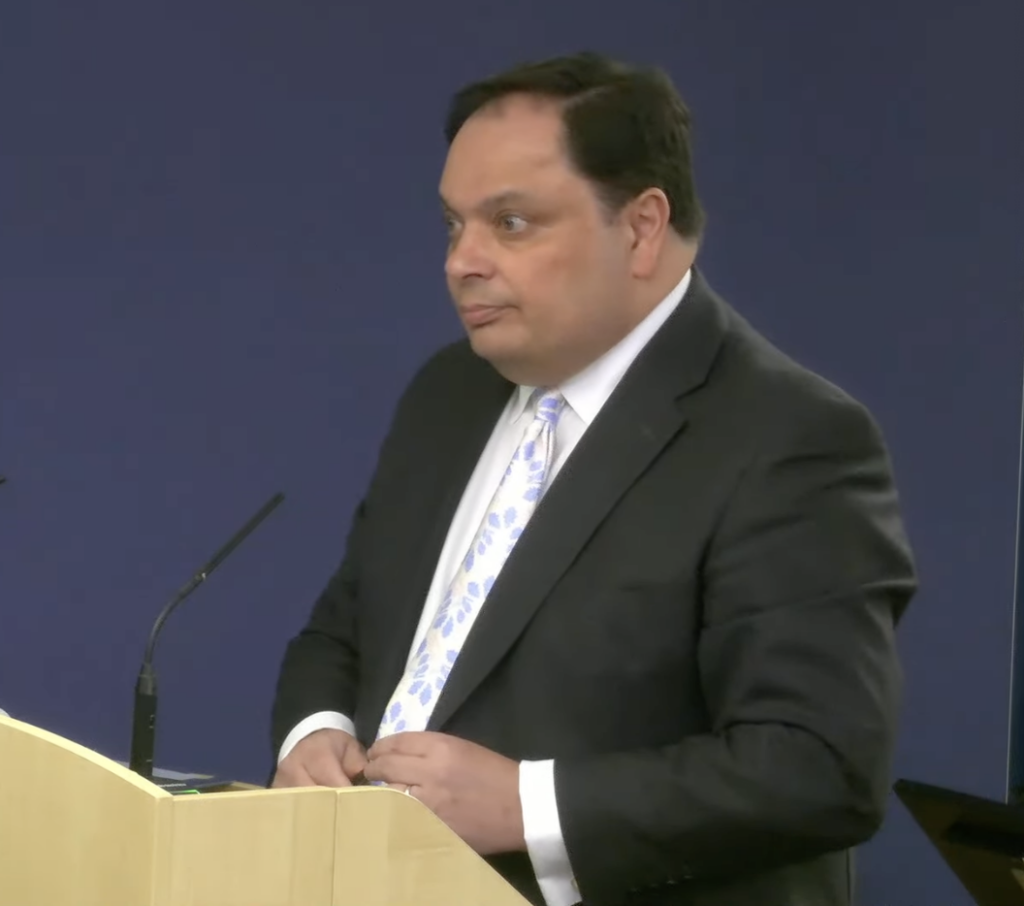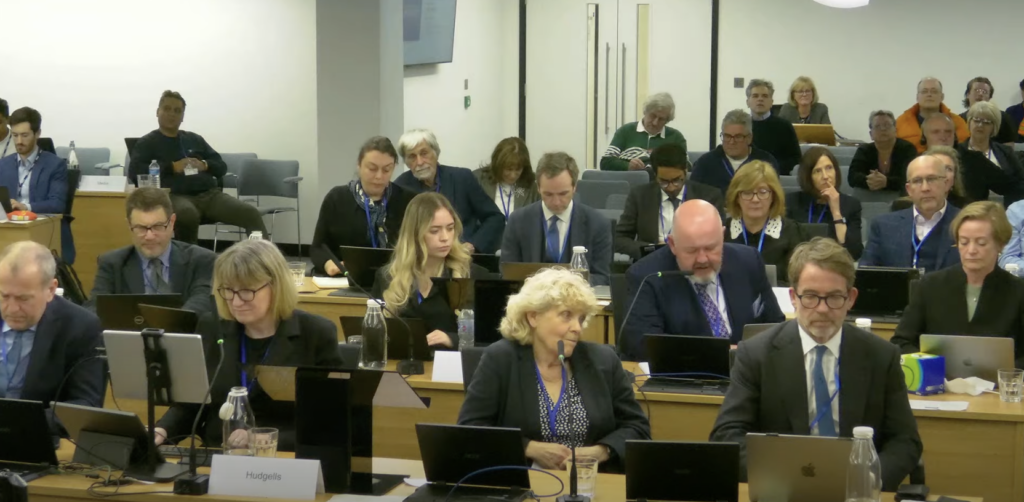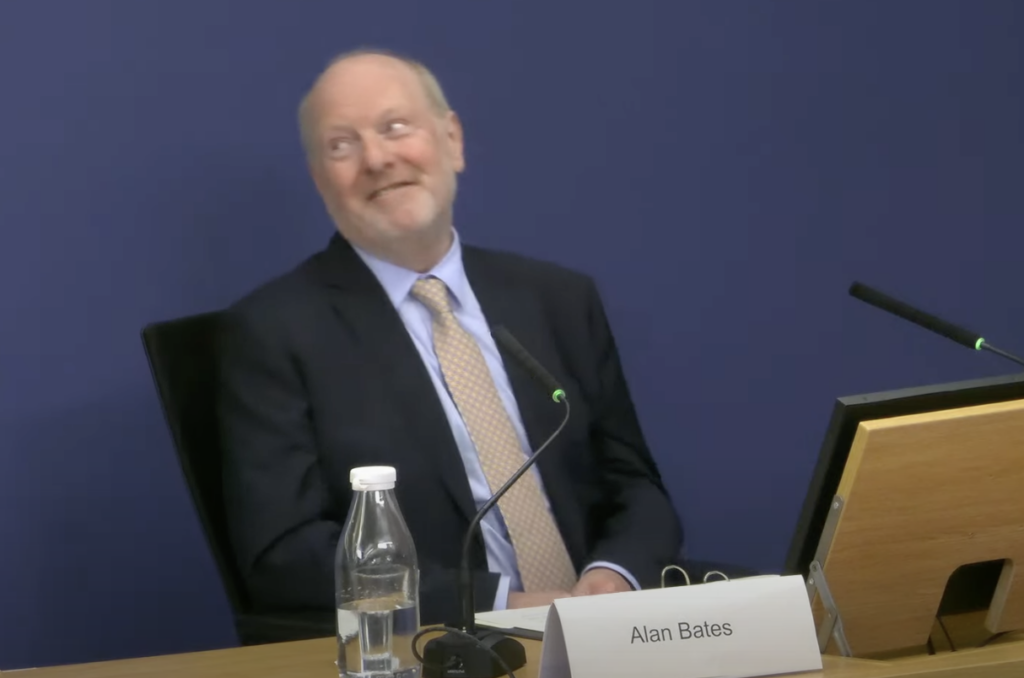
Founder of the justice for Subpostmaster alliance Alan Bates today gave evidence to the public inquiry into the Post Office Horizon IT scandal.
The Inquiry has resumed withafter a five week break, and is now entering a four month period of hearings, combining phases five and six of the planned seven phases. Phases 5 & 6 will take in the 2013 Complaint Review and Mediation Scheme, conduct of the group litigation, governance, stakeholder engagement, oversight and whistleblowing, amongst many other matters.
Disclosure failings again
The proceedings were prefaced by a short introduction from the Inquiry’s lead barrister Jason Beer KC who told the chair, Sir Wyn Williams, that the Post Office, despite warnings which now carry criminal sanction, was still failing in its obligations with regard to disclosure of information.
In fact it transpires that The Post Office had recently dumped 67,000 documents on the Inquiry, which may be of relevance to this phase of the enquiry.
Beer told the Inquiry that the Post Office was under written instructions to provide all documents “created by, sent to, received by, recorded in a conversation or meeting, or otherwise made reference to 19 specific individuals within The Post Office” including, but not limited to “Paula Vennells, Alice Perkins, Alwen Lyons, Angela Boon Beard*, Tim Parker and Susan Crichton”.
It transpired today that a number of documents created by or sent to the personal assistants of many of the senior executives were part of this latest chance of disclosure and therefore considered relevant.

The Post Office also sent a series of letters to the inquiry indicating that five separate disclosure reviews were still ongoing, which may yet bring to light documents relevant to witnesses giving evidence this month.
Beer told Sir Wyn: “The issues that the post offices disclosure to this enquiry have presented has been much more than minor ad hoc or additional disclosure” and were “very concerning.”
“These developments are,” he added “to use a parliamentary word, unwelcome.”
Sir Wyn was undeterred: “We’re going to carry on”, he announced, noting “there may be occasions in which witnesses are giving evidence, and documents haven’t caught up with witnesses, so to speak, and that is a highly undesirable state of affairs.”
That could be “cured” he said “albeit with some cost to the witness, by recalling them if necessary… the alternative to have a substantial break and… that is not desirable”.
And so, on to the star of the show…
Watching Alan

One of the most telling revelations about Alan Bates’ first (and likely only) session before the inquiry was the extent and speed with which he had grasped the problems with Horizon and the manner he went about giving the Post Office management clear and specific pointers as to where those problems might lie.
The documentary evidence brought up by Jason Beer over the course of the hearing told the story very clearly.
Given his experience using electronic point of sale (EPOS) and accounting systems before he became a postmaster, Alan Bates welcomed the arrival Horizon in 2000, but after a few weeks of use he became grimly aware of the errors and shortcomings with the system. He detailed them in writing to post office management. He was also alive to the dangers of taking any action which could be seen to accept responsibility for accounting variances which he disputed, and he saw the power imbalances written into the postmaster contract.
Despite his repeated requests for help, there did not seem to have been a single attempt to engage with him on the specifics he was raising.
The Post Office management for their part either ignored Alan’s request for help or miss equated his responsibilities under the postmaster contract.
Beer asked: “Was there any effort by the Post Office to engage with the points that you were making in this letter?”
Bates replied: “None at all… [they] never addressed them”

In the letters that were posted on the screen during Alan’s questioning today, we got a picture of a man who was polite, diligent, intelligent and hoping to work with the Post Office to determine the source of his discrepancies, fix the obvious errors within the Horizon system which were throwing up these discrepancies and resolve them to all parties’ satisfaction.
The Post Office, through its responses (and lack of them), exhibited a total disinterest in his situation, other than when it came to demanding money or threatening him with disciplinary action.
Even when it became apparent the Post Office was not going to listen, Bates proposed a fair resolution to the situation:
“I said ‘if you’re unhappy with the way that I’m providing your service then pay us back our initial investment and take the Post Office away’. I would’ve been quite happy for them to do that, and I probably wouldn’t be sitting here today.”
Alan and his partner Suzanne’s investment in their branch was around £100,000. The Post Office’s refusal to consider his offer to part company on equitable terms, has cost it and the government (and the taxpayer) hundreds of millions of pounds.
“They didn’t like me standing up to them”
Beer asked Bates what he understood to be the reason for the termination of his contract
He replied: “Basically, I think it was because a) they didn’t like me standing up to them… b) they were finding it awkward and c) I don’t think they could answer these questions, and I was going to carry on.”
After being told his contract was going to be terminated, Alan Bates went to the top, writing to Allan Leighton, Chairman of the Royal Mail plc, which in 2003 was the Post Office’s parent company. In his letter Bates complained about the Post Office’s “Stalinistic” management approach, “in order to bludgeon its will onto the poor Subpostmasters”.
Bates determination to see justice done shines through:
“Unlike the Post Office,” he writes, “I do not have endless funds to fight this injustice through the courts, but I do realise it is imperative for as many people as possible to have an opportunity to see in detail the management style applied by Royal Mail Group to the very public face of the local Post Office.”
Bates tells Leighton he is setting up a website called postofficevictims.org.uk, and he will be soon putting a hoarding outside his branch, with the name of the website on it.
The Post Office’s response was to conduct what Bates called a “tick box exercise”, stating that his contract had been terminated perfectly properly. And so our doughty campaigner’s path was set, gunning for justice for the next two decades, working between 30 and 40 hours a week. As he told the Inquiry:
“I didn’t set out to spend 20 years doing this. I hadn’t expected to be doing this so much by myself but it got more and more complex and it was harder and harder to share out and work as a bigger group to take things forward. So I finish up leading in a way.”

Bates said “One of the things we did do is bring people together. And a lot of people… they’re suffering so badly, but once you manage to bring them together to meet others in a similar situation, it has enormous effects on their lives.”
Bates’ diligence has a huge value to the public inquiry. He didn’t stop writing letters after he was sacked. After the Justice for Subpostmasters Alliance was formed he made a point of writing to every single postal affairs minister, to request meetings and detail exactly what was going wrong with the Post Office prosecutions and their defence of the Horizon network.
Jo Swinson, who was postal affairs minister when Second Sight (the Post Office’s independent investigators) were sacked in 2015, was sent a letter by Alan Bates before Second Sight’s termination. In the letter, Bates details the appalling behaviour of the Post Office and tells the minister what needs to be done to deal with the situation. Swinson gives evidence later on in the Inquiry. It will be interesting to see what she has to say for herself.
Derisory compensation offer
We know that despite all the work Alan Bates has done in bringing this enormous miscarriage of justice to light, his first offer of compensation from the government came in at around sixth of what he claimed for.
Today he told the inquiry that the government was refusing to put a value on the 20 years he spent campaigning. As he put it: “Government doesn’t think anything I’ve done is worth anything.”
Bates saved his final comments for the Post Office:
“They’re an atrocious organisation. They need disbanding. It needs… building up again from the ground floor… it’s a dead duck, it’s beyond saving… it needs a real big injection of money… otherwise it’s going to be a bugbear for governments for years to come.”
* Angela van den Bogerd as rendered by my speech-to-text software (I’ve broken my arm). This got picked up shortly after I published this blog post on twitter, so I decided to leave it uncorrected.
The journalism on this blog is crowdfunded. If you would like to join the “secret email” newsletter, please consider making a one-off donation. The money is used to keep the contents of this website free. You will receive irregular, but informative email updates about the Post Office Horizon IT scandal.

Leave a Reply